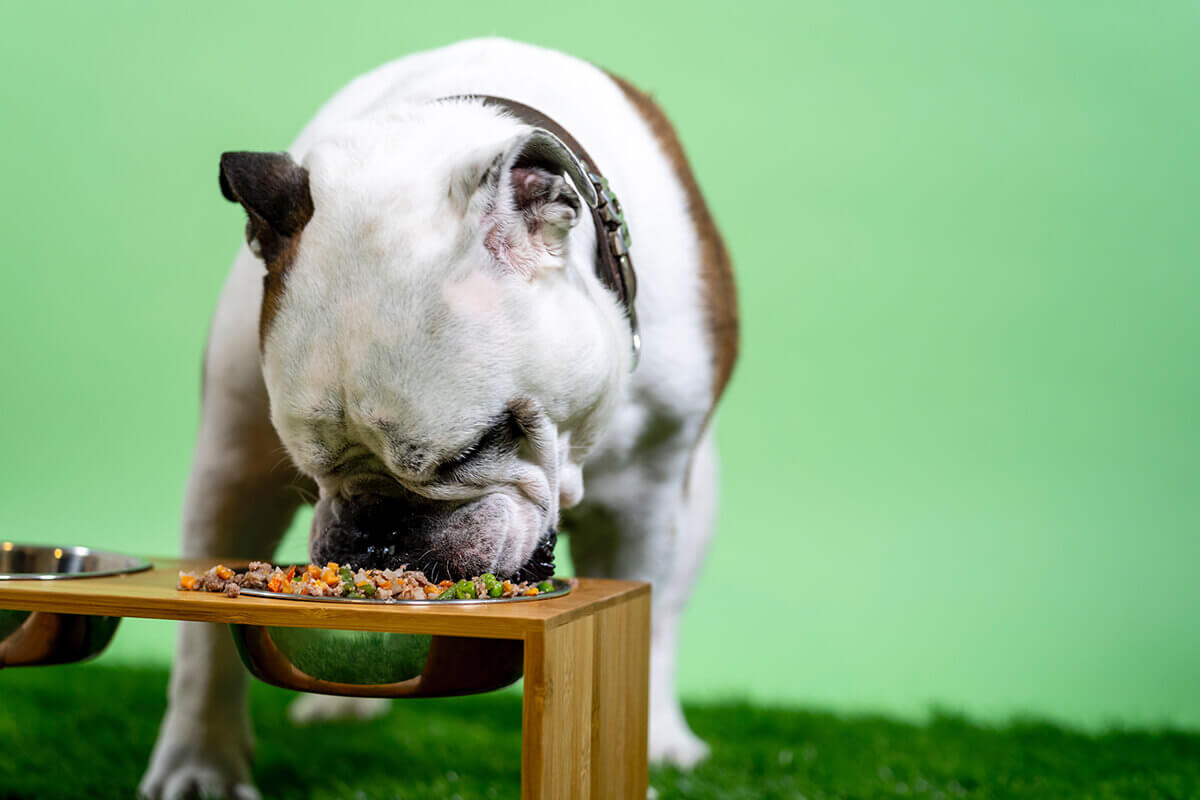Dog Health Tips - Keeping Your Dog Healthy
Dogs fill your life with love and joy but also need you to keep them healthy. It would be best if you assumed responsibility for your dog's health as a pet owner.
The following information about dog health can ensure that our canine friends have long and fulfilling lives.
Dog Health Tips - Keeping Your Dog Healthy
Bring Them For Routine Checkups
Just like people, dogs require routine checkups at the vet. These examinations assist in identifying any issues early on before they worsen. Make sure to take your dog to the doctor for a checkup at least once a year and more frequently if they are older or have health issues.
Fleas can spread diseases in addition to being an annoyance to your dog. It's crucial to regularly examine your dog for fleas and treat them right once you discover any. You can take care of this at home or take your dog to the vet.
Adult dogs should visit the vet yearly for physical exams, vaccinations, and tests for intestinal parasites and heartworms. Be sure to follow your veterinarian's advice on follow-up visits and treatments if your adult dog has particular requirements, a chronic health condition, or another sickness.
Additionally crucial to their health is keeping your dog clean. This includes giving them routine bathing, scrubbing their teeth and fur, and cutting their nails. All of these items aid in keeping your dog healthy by removing dirt and bacteria from its body.
You may expect the same from your veterinarian if you learn how to interact with them effectively. A strong relationship with your veterinarian can benefit you and your dog in the long run.
Get a Schedule for Vaccinations

shutterstock_622117586
Vaccinations are one of the safest ways to safeguard your dog's health, just like they are for humans. They guard against deadly, extremely contagious illnesses, including rabies, parvo, and distemper. The regimen and vaccinations they require will differ depending on their health conditions and where they reside, so consult your veterinarian about what to acquire. Typically, pups should receive their first round of vaccinations around six weeks, followed by booster doses every three weeks until they are 16 weeks old. Every one to three years, adult dogs get a booster vaccination.
Neuter or Spay Your Pet
Millions of stray dogs enter shelters annually, and many are put to death. By getting your dogs spayed or neutered, with simple procedures that prevent them from having puppies, you can contribute to the fight against population growth. Additionally, these treatments are advantageous for your pet; neutered males and females have lower risks of prostate disease and testicular cancer, and spayed females have a decreased chance of breast cancer and uterine infections later in life. Although the operations are generally safe, you might ask your veterinarian whether there are any hazards for your dog.
Give Them Plenty of Exercises

Many dog owners misjudge the amount of exercise their pets require to remain healthy and content. A bored dog with surplus energy may misbehave, frequently in a harmful way. In other instances, the undesirable conduct is simply the product of an energy surplus and not a true behavioral illness, which may lead to a diagnosis of separation anxiety or another behavioral issue.
Your dog will have lots of energy if you offer her a good diet. Your dog can wind up letting out that energy on your furniture, carpet, entryway, or even your priceless collection of rare books if she cannot get it out through exercise and activity.
Before you accuse your dog of causing harm, consider whether she is receiving enough exercise. Dogs generally need one to two hours of exercise daily, but the amount depends on the breed, size, and age. Establish a routine after figuring out your dog's perfect exercise program. In the interim, your health may even start to improve.
Proper Nutrition

All dogs need proper nourishment to remain healthy. Diet directly impacts your dog's gastrointestinal system, weight, energy level, and skin and hair. A poor diet may be to blame if an issue exists in one of these areas.
What your dog eats depends on age, weight, health, and degree of exercise. Generally speaking, check the label of the product you select to see if it contains a statement from the Association of American Feed Control Officials. It is so balanced and nutritionally complete. Don't give your dog raw eggs, uncooked meat, or bones. Feeding animals raw foods can result in major health issues, including E. coli infection. E. coli and other dangerous microbes. Bones can tear dogs' stomachs and intestines.
Select a respected brand of high-quality dog food, or inquire with your veterinarian about full and balanced homemade meals. Following your diet selection, observe your dog's reaction to it over the following four to eight weeks.
Oral Hygiene
Before you notice the foul breath, it's simple to forget about your dog's teeth. Contrary to popular belief, canine foul breath is an indicator of oral health issues rather than a natural occurrence. The accumulation of plaque and tartar can cause some very serious health issues.
Starting to concentrate on preventive dental care is never too late. Do something, whether brushing your dog's teeth, giving them dental treats, using oral rinses, or all of the above. It's better to take action before your dog's health is jeopardized by dental problems. Naturally, make sure to discuss your dog's teeth with your veterinarian. Periodically, professional cleanings can be required.
Routine Grooming

Not only do show dogs or fancy dogs need to be groomed. All dogs require some level of fundamental physical care. Your dog's grooming requirements will typically depend on its breed. However, your dog could require specific care due to ailments like allergies.
The typical dog will gain from a monthly bath and nail trim. Brush out the coat of short-haired dogs once or twice per week. Dogs with long hair should be brushed every day. A dog's hair may need to be cut every four to six weeks if it grows consistently.
After determining your dog's grooming requirements, please choose whether you'll handle it yourself or need to pay a pro. In either case, plan routine grooming appointments for your dog.
Keep your dog Hydrated

Give your dog access to clean, fresh water at all times to aid in hydration. Maintain a constant supply of clean, fresh water in his water bowl free of debris, hair, or other muck that might be collected there. His stomach receives the debris that ends up in his water bowl.
Keep Your Pet Warm and Cool
Your dog requires additional assistance to remain secure and comfortable when it's hot or chilly outside. When it's hot outside, take your dog for a stroll on the grass or in the shade to prevent its paws from getting burned by the concrete. Always check to see if they have access to drink and shade. Ask your vet about a sunscreen you can use if they have little fur or bare areas. During the warmer months, you should never leave your dog in a car because the temperature can rise by 20 degrees in just 10 minutes. It grows hotter the longer they're confined there. Even though it's only 80 degrees outside, the temperature in the automobile can soar to 114 degrees within 30 minutes.
Your best strategy is to keep your dog indoors as much as possible during the winter to protect them from the low temperatures. If they have a short coat, you might consider getting them a sweater and perhaps booties for walks to keep them warm. Antifreeze should also be avoided because even a small amount can be toxic to dogs. So make sure to wipe their paws as they enter the house, mop up any spills, and prevent them from eating snow.
Socialize your Dog

Your dog needs to have fun and play. He can obtain the exercise and social stimulation he needs by playing with his buddies and running about. Playtime helps dogs burn off energy and is important for their mental health. A happy dog is a tired dog.
Be ready for poisoning
Call your local poison control center or the ASPCA Animal Poison Control Center (888-426-4435) if your dog ingests something dangerous, and head straight to the vet or an emergency Veterinary Clinic. Don't take a chance; whereas ibuprofen can cause kidney failure, even a modest amount of chocolate can harm dogs.
Warning Signs
We must rely on our dogs' cues because they cannot communicate with us verbally. Several symptoms that point to a health issue in your dog are possible. Not all symptoms are alarming; just like you, your dog can get a little disease that goes away on its own.
Many dogs will naturally attempt to hide symptoms of acute sickness. Before the condition spirals out of hand, become aware of the warning signs and how to respond correctly. Contact your veterinarian immediately if your dog is showing symptoms of an illness.
Keeping your dog Healthy
You can keep your dog healthy and content by using the advice in this article. We enjoy having dogs in our lives and want them to stick around as long as possible. Therefore, if you look after them, they will look after you.






